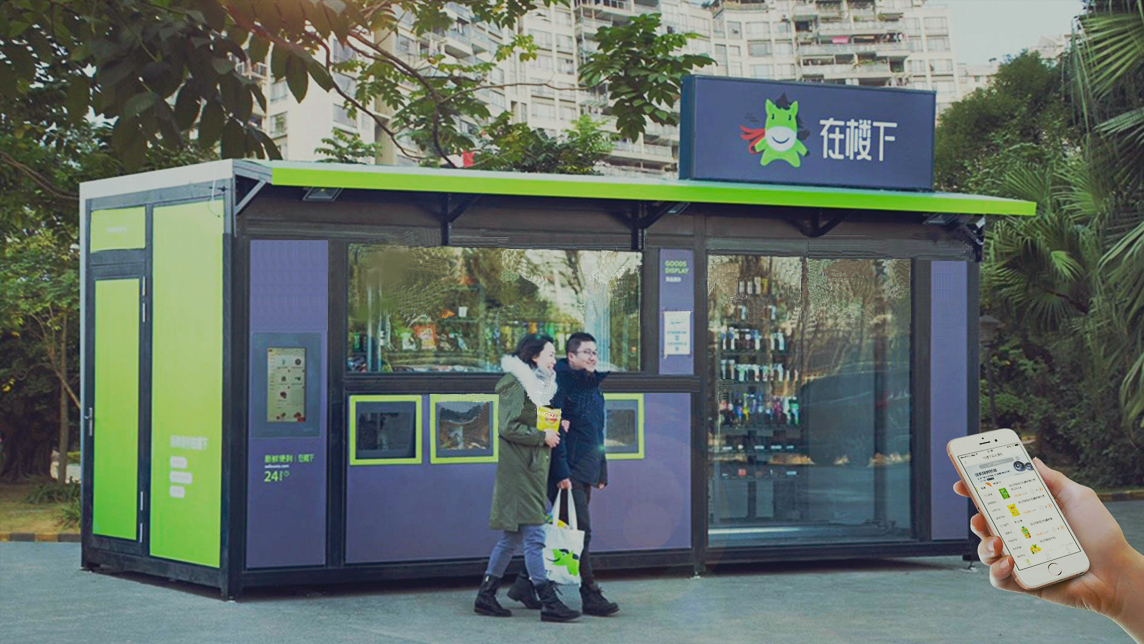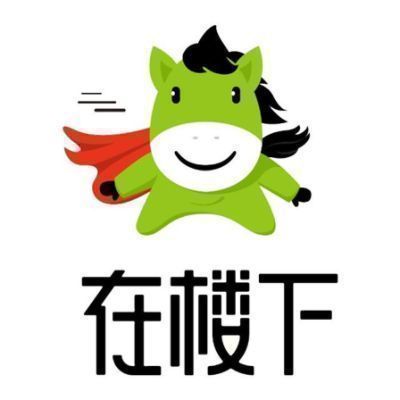Chinese consumers are accustomed to online shopping, but sometimes it's just too late to get what you need delivered. Imagine you are in the kitchen preparing dinner for your family and run out of salt. A trip to the nearest convenience store, maybe only one or two blocks away, becomes less convenient when the vegetables in the frying pan start to burn.
Not to worry. A Beijing-based startup has stepped upto provide an additional option. Zailouxia, which means "downstairs" in Chinese, has installed smart vending machines on a number of residential blocks to provide fresh food, snacks and other daily necessities around the clock.
"We are a supplement to offline retail," said founder Zhang Ying.
According to iResearch, a Chinese market research and consulting firm, the country's fresh food market is worth nearly RMB 1 trillion, yet online penetration is less than 3%.
Customers usually prefer to buy fresh produce from brick-and-mortar stores, but the long commute to the supermarket, difficulty finding parking and huge crowds during the after work hour can be a pain. Meanwhile, online sellers who aim to deliver fresh produce face a major obstacle: the exorbitant cost of cold chain logistics. The last leg of home delivery is particularly expensive.
Zailouxia’s "public refrigerators" are a more cost-effective option. Grocery suppliers use them as pick-up stations for bulk items. This model dramatically improves the economics of last-mile delivery, leading to cost savings for both buyers and sellers.
Blending online and offline
Depending on size, Zailouxia's vending machines, which look like large shipping containers, are able to accommodate 800–2,000 stock-keeping units. Often referred to as "public refrigerators," the vending machines ensure the freshness of perishables like vegetables and milk.
Unlike other unmanned convenience stores, the closed containers prevent contamination caused by human touch, theft and damage.
Customers can either place an order online and pay via WeChat mini program or scan the QR code for a display item and pay through multiple online payment methods. Through the glass windows on the machine, buyers can watch two mechanical hands pick up their items from the shelves and place them in the retrieval section.
When shopping online, customers don't always know if the items they buy will look like the perfect product image posted by the seller. With Zailouxia, what you see is what you get.
Ease of use has helped Zailouxia gain customer loyalty. One of Zailouxia’s grocery boxes was placed on a residential block with 14 convenience stores and two supermarkets nearby. Despite the hefty competition, the vending machine still succeeded in winning customers. Company data found some users would regularly buy vegetables at midnight or four eggs every day.
Striving for convenience
Zailouxia knows it needs to maintain its emphasis on convenience to keep customers. Zhang plans to offer more ready-to-cook meal kits: "We are responsible for preparing; customers do the cooking."
To serve customers who don’t even want to go downstairs to buy groceries, Zailouxia reached out to Ele.me, one of China's biggest online food delivery platforms, in October 2017. After Zailouxia's vending machines made their way onto the online platform, customers could place orders via Ele.me, and their purchases would be delivered directly by couriers.
The courier types in a retrieval code on the screen of the vending machine specified by the customer to fetch a purchase made via Ele.me. The whole process takes only 45 seconds. Because Zhang has limited the delivery radius to 1 km, if there is a Zailouxia grocery box on your residential block, home delivery can usually be completed within 15 minutes.
Couriers also like the machines. One remarked, "When we fetch takeout from restaurants, sometimes you have to wait till the food is ready. You don't have to worry about the wait when you work with a vending machine."
Riding the new retail trend
Investors have recognized Zailouxia's advantages. "Zailouxia has an obvious edge in facility, supply chain and assortment,"said Zhen Zhiyong, Vice President and Director at IDG Capital Partners, which participated in the startup's Series A funding round in November 2017.
For instance, traditional sales channels involve middlemen like agents, wholesalers and distributors who facilitate exchanges between brands and retailers. Many brands complain it takes too long for their products to reach end consumers. They also lack the means to find out how their products are received by customers.
So far 16 brands, including Lay's and Coca Cola, have partnered with Zailouxia. Because many of the startup's products are supplied directly by partner brands, Zailouxia can sell branded goods for 10% less than other stores. Products are replenished on a daily basis.
The data extracted from online purchases helps brands manage inventory and Zailouxia choose locations and offerings for its vending machines.
The Chinese retail market is trying to adopt the "new retail" strategy, which combines the best of online and offline shopping. Zailouxia is actively seeking out every opportunity to provide a better user experience. "Ele.me has delivery drones. Maybe someday in the future, after making a purchase from one of our vending machines, a drone will fly up and bring the package to your window," said Zhang.













